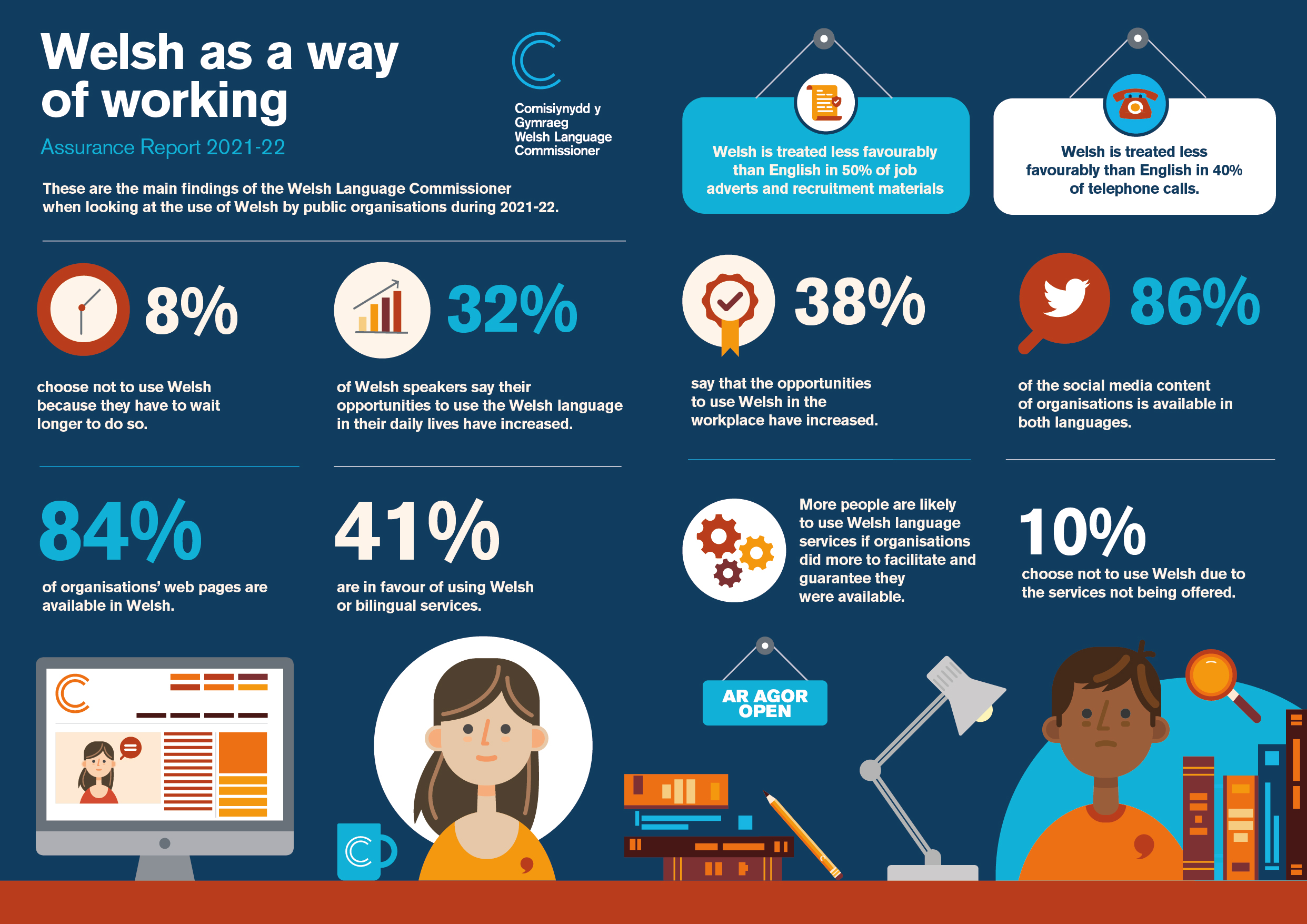Revolution is needed to create a Welsh language workforce, says Welsh Language Commissioner

The Welsh Language Commissioner has published its latest assurance report and it contains a mixed picture with regards to the provision of Welsh language services. This annual report, which bears the title Welsh as a way of working, is an opportunity to reflect on the way organisations consider the Welsh language when formulating policies and when planning and delivering services in Welsh.
The report notes the challenges we have all faced over the last few years as a result of the pandemic. A number of bodies have successfully adapted in order to comply with their language duties, but there are others who have not yet taken appropriate steps, and there are significant weaknesses in the processes of advertising jobs in Welsh and recruiting a bilingual workforce.
According to Gwenith Price, Deputy Welsh Language Commissioner, a fair amount of tolerance was shown during the pandemic, but the situation needs to change,
“There is no doubt that bodies have faced significant challenges over the past few years and that is especially true in the health sector. But this sector needs to consider how it is to meet the requirements of the standards as our findings show that it performs significantly worse than other sectors.
“If the situation is to improve, it is necessary that compliance with Welsh language standards leads the way in the recovery strategy.”
The main findings include 32% saying that the opportunities to use the Welsh language in their everyday lives have increased, 84% of organisations’ websites are now available in Welsh and there has been an increase in the ability of organisations to provide Welsh language services on social media.
But in contrast, 10% of the Welsh speakers who were questioned choose not to use the Welsh language due to the lack of availability of services. The Welsh language is treated less favourably than English in 50% of job notices and the research shows that more people would be likely to use the Welsh language if organisations improved the way they delivered and ensured Welsh language services.
Job recruitment is another area of concern for Gwenith Price. Gwenith adds:
“A few years ago, the Commissioner set a challenge for organisations to improve performance when recruiting a bilingual workforce. It is disappointing to see that has not happened. If we want to attract and develop a workforce that can speak Welsh, I believe revolutionary steps need to be taken.
“Language standards should not be perceived as something negative – they are there to show respect towards language choice and to enable speakers everywhere to be able to live their lives in Welsh. The public institutions of Wales have a leading role to play in ensuring that the Welsh language flourishes, and the way they comply with language duties is of utmost importance.”
The full Report can be read here





